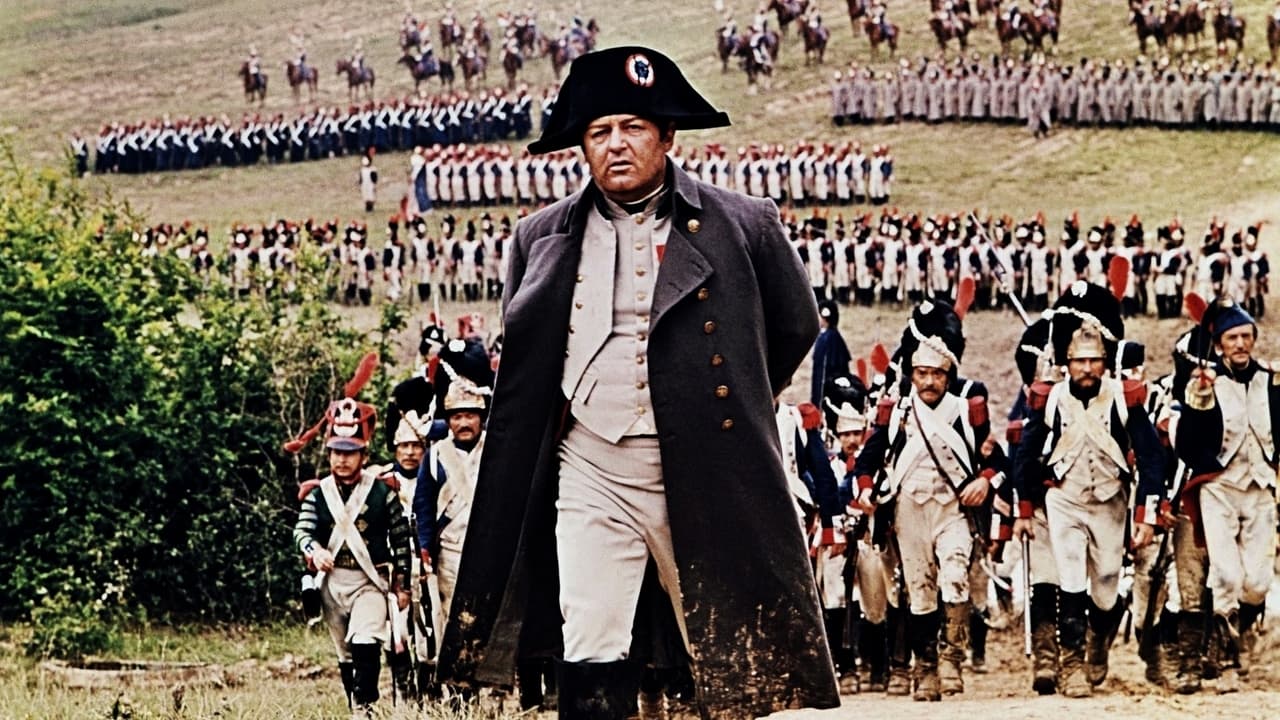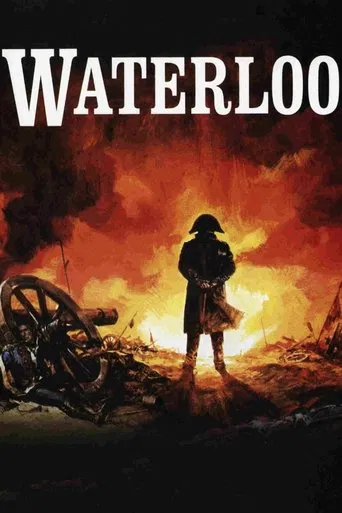

Although it has its amusing moments, in eneral the plot does not convince.
... View MoreThe movie is made so realistic it has a lot of that WoW feeling at the right moments and never tooo over the top. the suspense is done so well and the emotion is felt. Very well put together with the music and all.
... View MoreIf you like to be scared, if you like to laugh, and if you like to learn a thing or two at the movies, this absolutely cannot be missed.
... View MoreGreat movie. Not sure what people expected but I found it highly entertaining.
... View MoreThe battle scenes in this movie are incredible. In one scene they show so accurately how the British infantry formed squares to fend off a French cavalry attack. My only criticism of the movie is they did so much to create these great battle scenes but yet when they showed central characters on horseback it was so completely obvious they weren't on horses and in front of a green screen. I know the moview was made in 1970 but it's almost comical to watch. Overall a great movie though.
... View MoreA total of 16,000 soldiers of the Soviet army where employed to play the armies of Napoleon, Wellington, and Blucher in Sergei Bondarchuck's epic about the final act of Napoleon Bonaparte's rule. Filmed in the Ukraine this film has a amazing attention to meticulous detail. The film wows with its wide shots of massive formations of soldiers marching in battle. It also has an outstanding cast with Rod Stieger as Napoleon, Christopher Plummer as Wellington, and an elderly Orson Welles as Louis XVII. All of whom do a commendable job. I highly recommend this film to anyone who anyone in search of a historical film.
... View MorePerhaps the fact that I've a keen interest in history and not long ago read a biography of Wellington, drew me to nonetheless watch this big budget flop from the early 70's. Certainly in terms of scale it's a monumental achievement with the director's deployment of the huge numbers of combatants adding to the appreciation of the great generals themselves. With no computerised special effects in sight to artificially swell the numbers, the tableaux of blue versus red (and black) literally pops the eye and boggles the mind. While the bloodiness and brutality of the close combat scenes are not surprisingly toned down in deference to the censor, the cutaway final scene, where Wellington navigates his horse through the vast numbers of the dead, on a blood-soaked battlefield, tellingly conveys in complete silence the truth of Wellington's own words, quoted in the film, that there is only one thing more terrible than a battle lost and that is a battle won. The build up to the climactic battle is not unnaturally less engrossing, being a mixture of the French politics of the day, English societal mores and battle strategy, with a sprinkling of army humour to humanise and perhaps leaven somewhat the seriousness of everything else around it. The acting by the leads is variable, Rod Steiger, almost inevitably gives us The Method a- la-mode while Christopher Plummer somehow fails to convey the stature of Wellington while Orson Welles briefly bloats into view as the exiled French King Louie XXVII. This of course was the age of the anti-war movement which might explain the over-the-top (no pun intended) scene of a young English soldier screaming "Why are we killing each other" as he goes battle crazy as the film makes it point quite pointedly enough without the histrionics.
... View MoreI saw this movie on its release in 1970 and was hugely impressed by all aspects of how it recreated the battle of Waterloo and how close it stuck to the original facts , its use of the original statements of Napoleon and Wellington and of course the thrilling cavalry charges which illustrated the shock and awe that someone facing such a charge must have felt .A few years later I spent a week on the site of the battlefield staying in a hotel just behind Wellington's tree from where he conducted most of the battle . During this time I walked every area of the battle , visited Hugomont and saw the evocative graves of the handful of french soldiers who managed to get over the walls and who were buried where they fell . The battle field has been preserved intact and one is struck by the closeness and intimacy of the conflict where Napoleon and Wellington stood on opposite ridges and were visible to each other at all times during the battle .As I am from Ireland I found it interesting to discover that the horses of Napoleon ( called Marengo ) and Wellington ( Copenhagen ) at Waterloo were bred in Co. Wexford at a place called Wellington Bridge and that in fact the two horses were half brothers ! I watched the DVD for the first time in 40 years last night and was struck by two things , how close the movie was to the actual topography of the real Waterloo , La Haye Sainte etc. and how miscast Christopher Plummer was .I admire Plummer and have followed his career but now in hindsight I feel he was too young for the part of Wellington particularly against such a strong force that was Rod Steiger's Napoleon . Plummer came across as effete and campy and his main forte seemed to be confined to delivering the witty quips and put downs used by Wellington which in no way did justice to the real Wellington whereas in contrast Steiger nailed the role of Napoleon .In fact I feel that Plummer could now play Wellington and do him justice much better at his present age ! I also feel that the over dramatic use of the display of arrayed cannon when the Old Guard was invited to surrender was unnecessary and completely over the top as the moment itself was both pitiful and glorious enough without embellishment . The simple French monument on the field of Waterloo today to the Old Guard is by far the most simple and moving of all the battle field's many monuments .Those criticisms aside I enjoyed the movie and would watch it again , it has aged well and if you want to know about ancient battles then this is the best battle movie of all time .
... View More